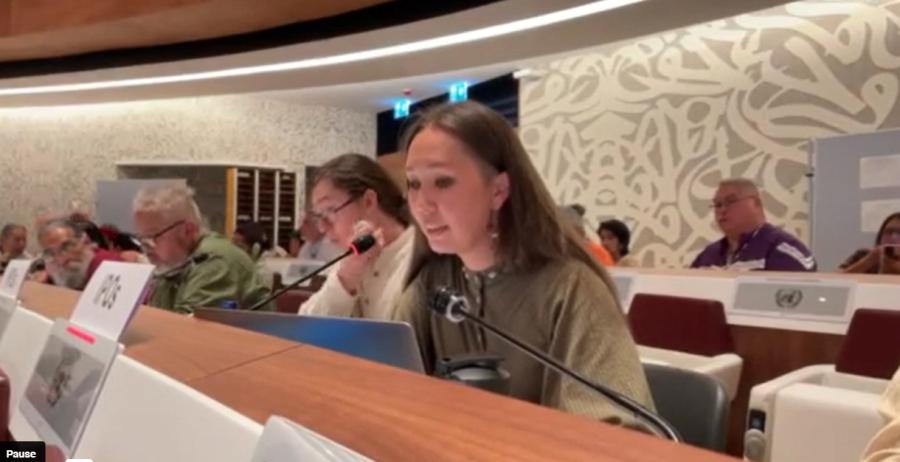The Hague, Netherlands - In the weeks running up to the May 16, 2006, Shell Annual Shareholder?s meeting in the Hague, the oil giant has embarked on a broad PR campaign to try to minimize the impacts of its massive Sakhalin II oil and gas project on the critically endangered Western Gray Whale. ?The world is watching the Gray Whales of Sakhalin. Alexander Rutenko is also listening,? the ad says, referring to that scientist?s monitoring of underwater noise impacts on the whale.
However, the ad campaign?s claims belie the fact that Shell is ignoring many of the world?s top scientists? recommendations on the protection of the critically endangered Western Gray Whale.
?While Shell feigns support for science, it ignores the results, which may spell the ruin of the remaining 100 Western Gray Whales off Sakhalin Island? said David Gordon, Executive Director, Pacific Environment. ?It?s not enough to pay for ads about science; Shell must actually follow the recommendations that come from scientific conclusions.?
A timely example comes from the text of a letter to Shell from the Secretary General of the International Union for the Conservation of Nature (IUCN)— a group that was commissioned by Shell to establish a panel of globally recognized independent experts to assess and make recommendations concerning Sakhalin II impacts on the Western Gray Whale. ?Concerns exist within IUCN, and have been expressed to my staff by the independent scientists, that the company may not be taking the IISG process seriously enough,? said IUCN Director General Achim Steiner.[1]
Director General Steiner?s concerns about Shell?s avoidance of scientific recommendations were not the first. According to the independent scientists themselves:
[E]xisting and planned large-scale offshore oil and gas activities pose potentially catastrophic threats to the population.
The most precautionary approach would be to suspend present operations and delay further development of the oil and gas reserves in the vicinity of the gray whale feeding grounds off Sakhalin, and especially the critical nearshore feeding ground that is used preferentially by mothers and calves.[2]
And, concerning the installation of the Sakhalin II PA-B off-shore oil platform adjacent to the Western Gray Whale?s only known feeding area, the two co-chairs of the panel stated:
[U]nquestionably, their decision to adhere to their predetermined construction schedule has, in some respects, obviated or undermined the utility of our review.[3]
Meanwhile, Pacific Environment, Rainforest Action Network and Sakhalin Environmental Watch are taking on the banking giant ABN Amro as it considers offering financing to Sakhalin II. The groups recently took out a full page ad in the Washington Post pointing out ABN Amro?s ?outstanding environmental hypocrisy? for considering financing Sakhalin II while also receiving an environmental award and claiming to adhere to the Equator Principles on environmental performance.[4] The ad says:
ABN has a choice to make: the company should either withdraw their consideration for financing Sakhalin II, or decline the award and admit to violating their commitment to the Equator Principles.
[1] The Interim Independent Scientific Group (IISG) is the latest in a series of independent scientific panels convened by IUCN. Director General Achim Steiner?s letter is available at: http://cmsdata.iucn.org/downloads/sakhalin_energy_responds.pdf
[2] IUCN, Impacts of Sakhalin II Phase II on Western North Pacific Gray Whales and Related Biodiversity: Report of the Independent Scientific Review Panel, 2005,: available at http://cmsdata.iucn.org/downloads/isrp_16_feb_press_release.pdf
[3] Pacific Environment, Evaluation of Conformity, 2, Evaluation of Risks and Impacts on Western Pacific Gray Whale, at pg 4. Available at http://pacificenvironment.org/article.php?id=1481
[4] Available at http://pacificenvironment.org/downloads/RAN_EnvHypocrisy_WP_may06.pdf



